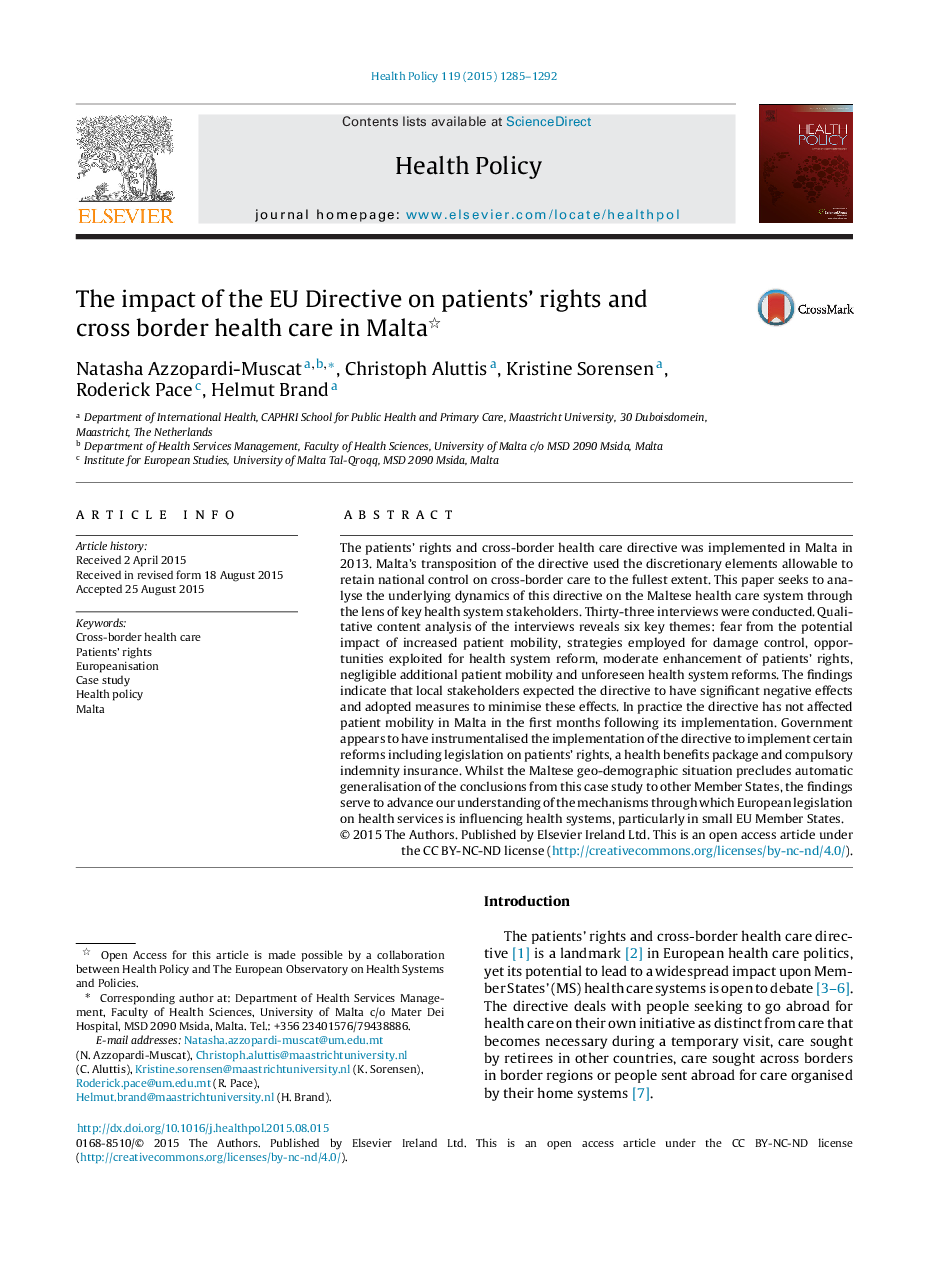| Article ID | Journal | Published Year | Pages | File Type |
|---|---|---|---|---|
| 6239226 | Health Policy | 2015 | 8 Pages |
Abstract
The patients' rights and cross-border health care directive was implemented in Malta in 2013. Malta's transposition of the directive used the discretionary elements allowable to retain national control on cross-border care to the fullest extent. This paper seeks to analyse the underlying dynamics of this directive on the Maltese health care system through the lens of key health system stakeholders. Thirty-three interviews were conducted. Qualitative content analysis of the interviews reveals six key themes: fear from the potential impact of increased patient mobility, strategies employed for damage control, opportunities exploited for health system reform, moderate enhancement of patients' rights, negligible additional patient mobility and unforeseen health system reforms. The findings indicate that local stakeholders expected the directive to have significant negative effects and adopted measures to minimise these effects. In practice the directive has not affected patient mobility in Malta in the first months following its implementation. Government appears to have instrumentalised the implementation of the directive to implement certain reforms including legislation on patients' rights, a health benefits package and compulsory indemnity insurance. Whilst the Maltese geo-demographic situation precludes automatic generalisation of the conclusions from this case study to other Member States, the findings serve to advance our understanding of the mechanisms through which European legislation on health services is influencing health systems, particularly in small EU Member States.
Related Topics
Health Sciences
Medicine and Dentistry
Public Health and Health Policy
Authors
Natasha Azzopardi-Muscat, Christoph Aluttis, Kristine Sorensen, Roderick Pace, Helmut Brand,
